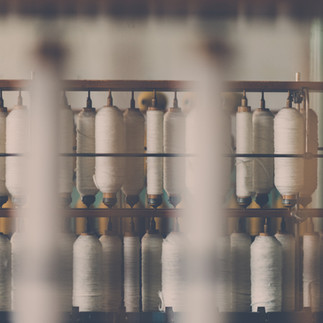Keywords: Sustainable textiles, Eco-friendly fashion, Alternative fibers, Textile recycling, Smart textiles
The textile industry is undergoing a profound transformation, catalysed by a burgeoning demand for sustainable and eco-friendly practices. As global awareness of the environmental ramifications of fashion and apparel intensifies, innovative entities and researchers are at the forefront of pioneering new technologies and materials that are set to redefine the textile landscape.
Emerging Sustainable Fibres and Fabrics
A pivotal shift in sustainable textiles is the emergence of alternative, eco-friendly fibres. In response to environmental concerns, brands are increasingly opting for natural and renewable materials such as organic cotton, bamboo, hemp, and lyocell (derived from wood pulp). These materials not only diminish the reliance on synthetic fibres but also bolster sustainable agricultural and forestry practices.
Moreover, the industry is exploring innovative approaches to upcycle and recycle existing textiles. Brands such as Kilomet109 in Vietnam and Stain in Indonesia are spearheading efforts to repurpose and reuse fabrics. This not only minimises waste but also breathes new life into discarded materials.
Technological Innovations in Textiles
The trajectory of sustainable textiles is further shaped by technological advancements. Smart textiles, integrated with sensors and conductive fibres, are enabling garments to interact with both the wearer and the environment, heralding new avenues for performance and functionality. These "e-textiles" are capable of monitoring vital signs, regulating temperature, and harvesting energy from movement.
Additionally, the adoption of 3D printing in textile design marks a significant evolution. This technology facilitates the creation of intricate, bespoke fabrics and garments, reducing waste and supporting on-demand production. As 3D printing technology matures, it holds the potential to revolutionise textile design and manufacturing processes.
Enhancing Sustainable Supply Chain Practices
The pursuit of sustainability in the textile industry extends to improving supply chain practices to mitigate the environmental impacts of textile production. This encompasses adopting ethical sourcing policies, tracing the origins of raw materials, and integrating renewable energy sources in manufacturing facilities.
Initiatives such as the Better Cotton Initiative, Fair Trade, and the Responsible Wool Standard are instrumental in ensuring that textiles are produced in a socially and environmentally conscientious manner. By prioritising transparency and accountability throughout the supply chain, the industry aims to foster a more sustainable future.
The Future Pathway
With increasing global consciousness about the environmental impacts of the fashion industry, the future of sustainable textiles appears more promising than ever. Through the adoption of innovative materials, advanced technologies, and responsible supply chain practices, the textile industry is well-positioned to lead the charge towards a more sustainable and eco-friendly future.







Comments